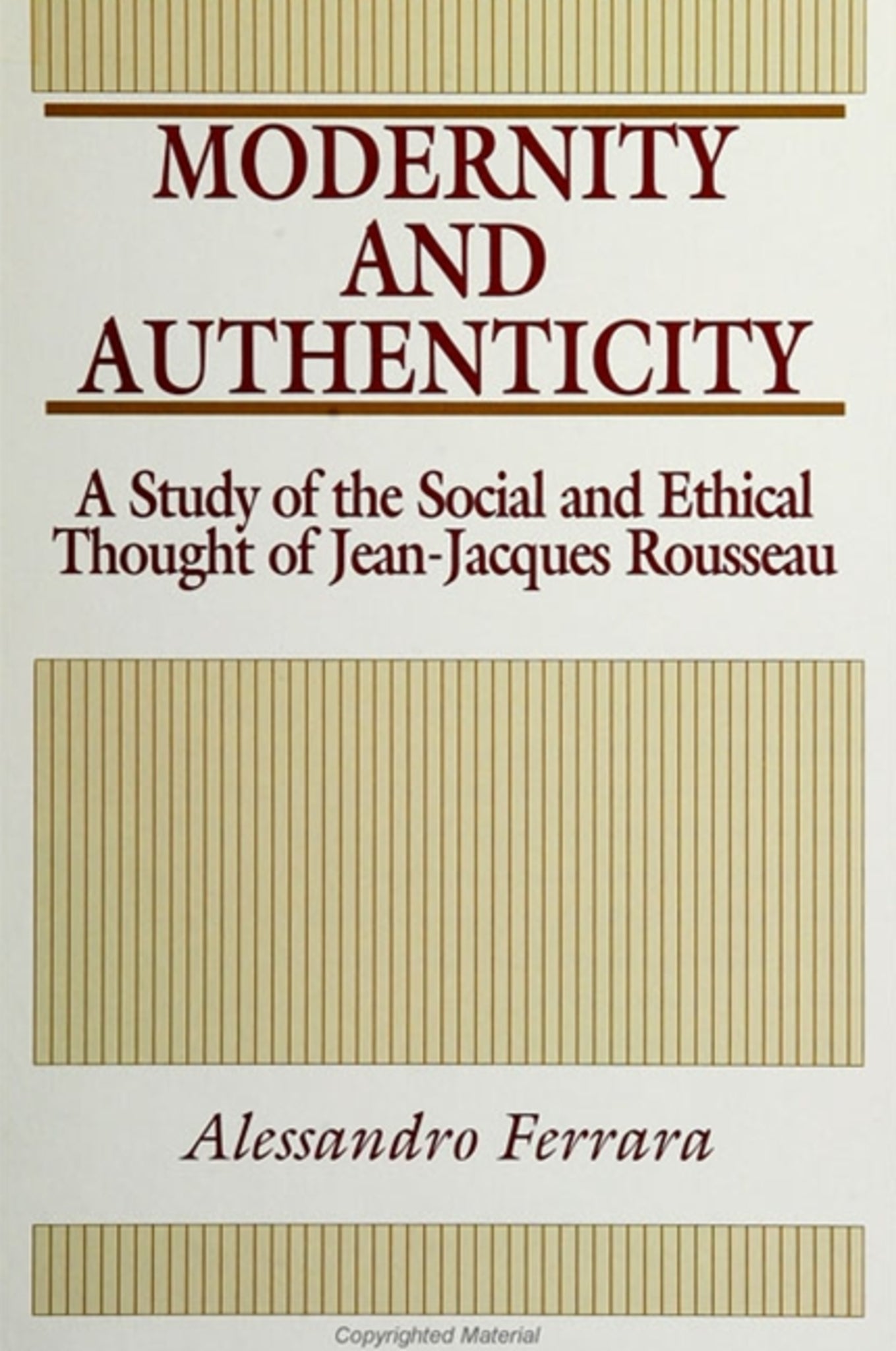We're sorry. An error has occurred
Please cancel or retry.
Modernity and Authenticity

Some error occured while loading the Quick View. Please close the Quick View and try reloading the page.
Couldn't load pickup availability
- Format:
-
22 December 1992

This study on the contemporary relevance of Rousseau's ethical and social thought, the "ethic of authenticity," responds to the tensions of modern morality and rivals the answers generated by the more mainstream tradition of the "ethic of autonomy."


"This book is an original analysis of the idea of authenticity in Rousseau's work in particular and in the tradition of modern ethics in general. It begins with an overview of the persistent critique by contemporary conservatives of the notion of authenticity. Ferrara succeeds in bringing out the relevance of Rousseau to current discussions of modernity and postmodernity. It also brings some initial clarity and coherence to an idea—authenticity—that is notoriously slippery and regarded suspiciously by many." — Stephen K. White, Virginia Polytechnic Institute and State University
"I know of no study on Rousseau like this. It is indeed useful and important. Ferrara locates Rousseau in the context of the contemporary discussion of ethics and links him with the modern as well as the classic discussions of ethics. It is also readable." — David A. Rasmussen, Boston College
Preface
Introduction
1. Contemporary Modernity and Its Discontents
2. Rousseau's Critique of Modernity
a. Man in the State of Nature
b. Rousseau's Argument against Hobbes
c. The State of Nature and Society
d. The Transition to Society
e. From the Patriarchal to the Agricultural Society
f. Society and the Self: Rousseau's Critique of Modernity
3. The Legitimate Political Order
a. Competition and the Emancipated Society
b. Neither Totalitarian nor Liberal
c. On Rousseau's Concept of Freedom
d. Civic Virtue and Private Virtue
4. Rousseau's Psychology of the Self
a. Education versus Socialization
b. Rousseau's Psychology of the Self
c. Excursus on Authenticity
5. Beyond the Limits of Autonomy: Rousseau's Ethic of Autheniticy
a. The New Heloise
b. The Limits of Autonomy
6. Ethics and the Tensions of Modernity: A Neo-Weberian Interpretation
a. Rousseau and the Postmodern Syndrome
b. Weber's Conception of Ethical Evolution as Rationalization
c. The Tensions of Modern Morality
7. Authenticity and the Evolution of Ethics
Notes
Bibliography
Index



